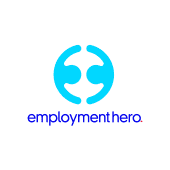
11 Ways to Keep Employees Happiness High Through a Downturn
UK businesses have been doing it tough in 2020 and with the recent announcement of the UK's unemployment rate jumping to 4.8%, as 314,000 people lose their jobs, there is no denying many companies will be facing an economic downturn.
Although downturns can be incredibly hard on businesses’ bottom lines, employees often bear the brunt of added pressure from these tough situations. Companies often make the mistake of not taking the time to consider employee happiness during a downturn.
Looking after employee happiness levels doesn’t only create a more resilient company culture during stressful times, it can help your business bounce back faster. And honestly, who wouldn’t want that?
How can we define happiness in the workplace?
Employee happiness is a measure of your team’s sense of engagement and emotional connection with their jobs. Boosting organisational performance, employee engagement can drive real business outcomes - and research backs this. A recent study from Aon Hewitt identified a 5% increase in employee engagement linked to a 3% increase in revenue growth the following year. Happy employees are committed to their employers and will work harder to achieve key results.
Widespread unhappiness and disengagement can lead to absenteeism, burnout, bullying and distrust of management. In other words, terrible and high cost outcomes to encounter when your company is already experiencing a downturn.
To improve employee happiness levels begin by measuring the engagement levels of your team. From there you can begin to implement small measures that can make a dramatic difference to your workplace.
How can you measure if your employees are happy and engaged?
1. Use HR software to manage employee engagement
If we look through the lens of the current climate, employees may be dealing with the news of the downturn whilst working remotely. This could lead to a greater sense of isolation, anxiety and a feeling of disconnectedness.
Having a centralised HR platform may not only help your employees feel empowered to manage their own personal details, it can also be the perfect employee engagement tool - creating a hub for connection, employee recognition, company announcements and feedback.
Receiving anonymous feedback can be very powerful during a downturn. Employment Hero’s Happiness Score allows team members to provide discrete feedback monthly, helping your company monitor happiness insights over time.
2. Use surveys to track employee engagement
An employee survey is a trusted method to measure staff engagement levels. Ask a considered set of questions that employees can respond to anonymously. Try to avoid offering yes/no response options and make questions as clear as possible.
As well as asking questions around happiness, other essential survey questions would cover topics like leadership, development, alignment with company values, recognition and remote working. Make sure you leave a space for employees to submit suggestions and acknowledge these when you share the results.
Following through with survey results is critical - nothing looks worse than recognising an issue and not acting on it! Every survey question you ask suggests you’re going to take action based on the answers you get. After you’ve gathered your results identify the key areas in which you can improve. From there create a detailed and public strategy to implement measures that will help the situation.
💡 Looking for a survey guide approved by HR and mental health experts? Download our Covid Employee Wellness Survey template.
What can you do to boost employee happiness?
3. Be as transparent as possible
Fear of the unknown has been a huge issue for individuals throughout 2020. With so many elements of life no longer certain, chances are your team is experiencing anxiety from several unstable sources around them.
For this reason, it’s incredibly important to be as transparent as possible with your employees. If the possibility of job losses are on the table, make that clear to your team. Glossing over information or sugar coating the situation can lead to a lack of trust. Even if the news is bad, being as honest as possible can lead to a greater sense of comfort for your team.
Aim for a balance of realism and optimism. Be clear about the issues the company is facing but also highlight your roadmap out of the downturn. Organise a company-wide Q&A to respond to any concerns and remember to keep your employees updated regularly. How is the situation evolving? How is the roadmap to a better situation progressing?
4. Communicate expectations to your team
As well as giving regular updates to your team, be sure to open up the communication about what you expect from them during the recession.
If there have been job losses, be realistic about what you are expecting of the remaining team members. Staffing changes can cause massive workload anxiety with employees, be sure to discuss any new roles or expectations with the staff member directly. Have regular check ins to make sure they are across any key priorities and look for ways to streamline their workload if possible.
A downturn is also a great time to re-evaluate team objectives and how they contribute to the wider company’s goals. Engaging with OKRs (Objectives and Key Results) can be a great way to show your employees their part to play in striving for company goals. OKRs are fully collaborative and allow greater visibility between departments. Individuals can see how they are contributing to the company’s objectives and will be empowered to recognise how they are making a difference in returning the company to a better situation.
👉 Want to learn more? Download our free guide to using ORKs 👈
5. Encourage work-life balance
It’s easy for employees to become overwhelmed when their organisation is in a rough patch. Many team members are likely to put pressure on themselves to repair the situation.
Although it’s great to know that your team cares about the welfare of the company, it’s important to not let work pressures overwhelm your staff. If you notice that employees are consistently working well outside work hours you could be on a fast track to employee burnout.
This risk can be exacerbated by working from home. When Employment Hero surveyed 1,200 workers earlier this year for the Remote Working Survey Report, 37% of respondents reported that it was harder to switch off when working from home and 30% said that the lines were increasingly blurring between work and home life.
Put a stop to these habits when you see them emerging. If you see it becoming a trend, organise company-wide communications to make it clear that you don’t expect your employees to be regularly working outside of designated hours.
💡 Pro tip, lead by example. Leaders should also be encouraged to switch off and have down time.
6. Celebrate the small wins
It’s easy for bad energy to snowball during downturns. Neglecting to notice small wins for your team can dramatically impact employee happiness, creating a negative work environment. No matter what the situation is, there will always be small achievements to celebrate within your workplace.
Has someone recently completed a training program? Maybe a team member has been contributing really creative ideas to strategy conversations? Even taking note of a staff member who is always showing support to others. Create a company culture of recognition - look out for good things happening within your team and shout them out when you see them.
7. Show your appreciation with recognition and benefits
Part of celebrating the small wins is showing recognition to employees who are kicking goals and teams that are working hard throughout the downturn.
Rewards and recognition don’t have to come in the form of pay rises or bonus schemes. In fact, recent research suggests that up to 8 in 10 employees are seeking work perks and benefits over salary increases.
Some examples of low-cost ways to reward and recognise employees are:
- Awards and trophies
- Handwritten thank you notes from leaders
- Longer lunch breaks
- Allocated time off
- Gift cards for coffee or sweet treats
- Team building activities
- Dog days 🐶
💡 Read more about cost-effective staff rewards.
8. Continue to invest in professional growth opportunities
Even when withstanding the effects of a downturn, resilient businesses will encourage their employees to keep progressing in their professional development. For many members of your team you will also be giving them valuable resources to combat an unfamiliar downturn situation.
Give your employees the opportunity to learn more skills during the tough times and you’ll see the individual and the company thrive when you emerge from the downturn. Discussing learning and development with staff can also have a similar response to your recognition measures - it makes your employees feel valued. Investing in your employee’s skills signals that you’re looking to support them in the long term, a measure that can help improve staff retention.
9. Keep up workplace traditions
Do you celebrate team birthdays every month? Do you have fun with casual Fridays? Even if they are on a smaller or virtual scale, be sure to honour workplace traditions.
Allowing traditions to fall off the radar sends a bad signal. Neglecting activities that employees have become accustomed to can strain the emotional connection individuals have with their employers. These events are also key moments for employee engagement, as they encourage team members to connect and develop positive relationships with their colleagues.
The same goes for holidays! Don’t let Christmas, New Year or Halloween pass by quietly. Even if you’re on a tight budget, make sure you acknowledge major holidays by organising small celebrations.
10. Engage in meaningful work
An economic downturn can be a real creativity-killer for your employees. In a series of studies by Harvard researchers, it was found that concerns about a company’s economic circumstances could make employees less collaborative and unmotivated.
Inspire your employees to engage in fulfilling work by organising group working sessions and fostering a sense of collaboration. Run a brainstorming session outside the office (or home office) space.
Ask your employees to think about the deeper purpose of their work as a team and as individuals. Celebrate each person’s specific talents and encourage them to utilise them in meaningful collaborative projects.
11. Make wellness a priority
Employee wellness should also be a hugely important consideration for employers. With all of the curveballs of 2020, it’s highly likely your employees are experiencing stress beyond the workplace. Modelling from the University of Sydney suggests that psychological distress caused by the pandemic is still yet to peak, and is likely to reach 65% of the Australian population by 2022. For this reason it’s critical to be aware of your employees mental health and invest in it wherever possible.
If you are engaged with an Employee Assistance Program (EAP), now is a great time to remind your team of their details and how to get in touch. If you don’t have an EAP, there’s lots of free resources available to share amongst your team to assist with mental wellbeing.
👉 Not sure where to start? Download our free Workplace Wellness Pack for employees.👈
The wrap up…
Keeping your employees happy should be a top priority during a downturn. As your company’s best asset, empower them by giving them tools to be resilient in tough times. Keep your company culture positive and you’ll be positioned for success when things start looking up.


